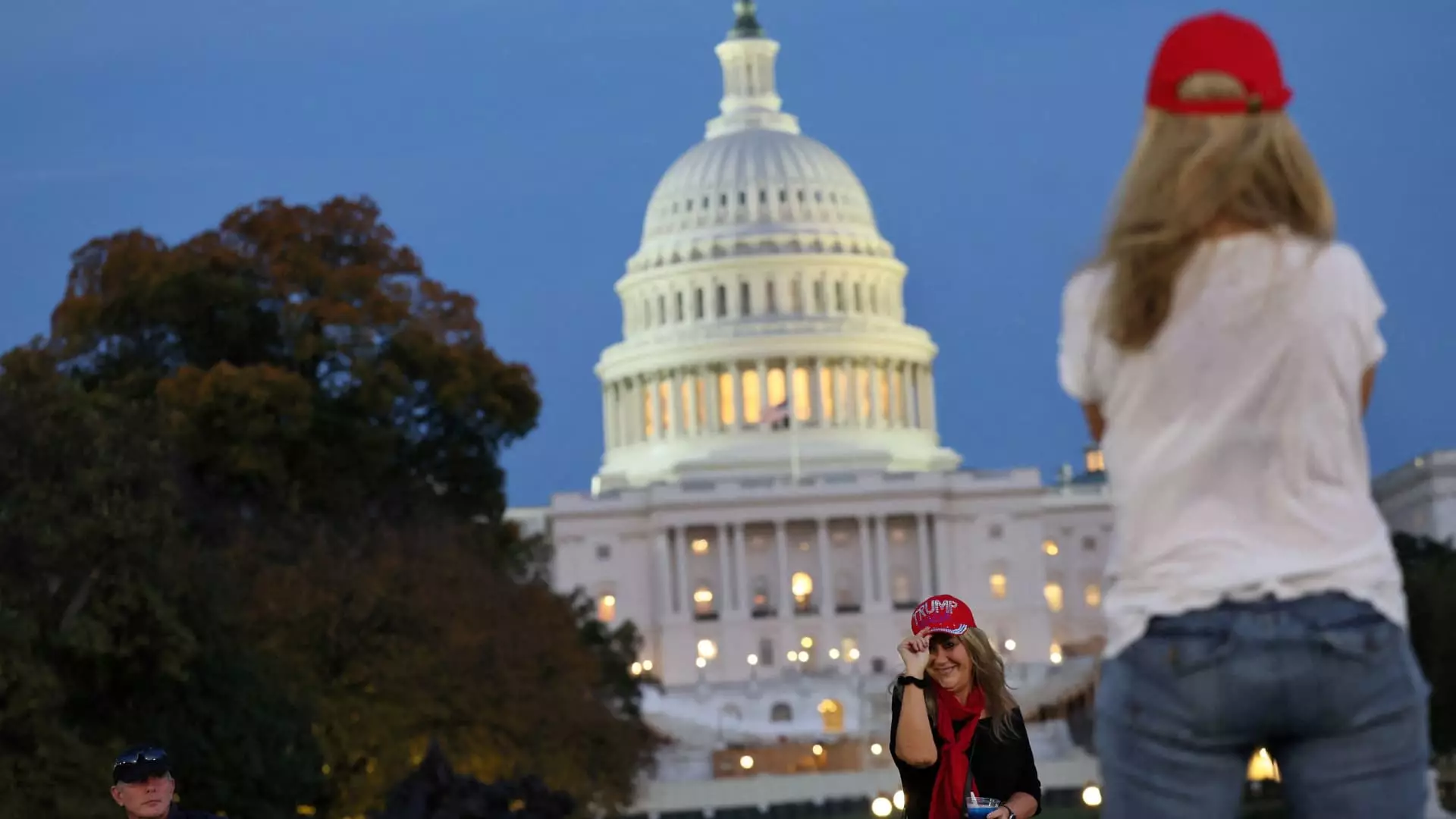The ascent of Donald Trump to the presidency has instigated a wave of speculation among individual investors regarding the implications for their financial portfolios. While financial markets experienced an impressive rally following his victory, experts advocate for a prudent, measured response rather than immediate, sweeping changes to investment strategies.
Following Trump’s election triumph, stock markets reacted positively, with the Dow Jones Industrial Average surging past 44,000 for the first time. This spike reflects a general optimism among investors who anticipate a shift toward more economic growth and favorable business policies under Trump’s administration. However, such reactions can be deceiving and may not reflect sustained trends. Financial professionals emphasize the importance of distinguishing between short-term market volatility and long-term financial stability. “Many investors experience a knee-jerk reaction to market fluctuations, but it’s crucial to acknowledge that markets are inherently unpredictable,” warns financial advisor Jude Boudreaux. He advocates for adherence to pre-established financial strategies built upon individual goals and risk assessments.
Financial advisors across the industry echo the sentiment that a measured approach is paramount. Lee Baker, another certified financial planner, advises clients against making drastic changes merely due to electoral outcomes. He recognizes that while certain adjustments might be warranted in response to unfolding policies, these should be strategic and based on informed analysis rather than emotional decision-making. The prevailing stance among many financial experts is to maintain a focus on personal financial plans rather than get swept up in the immediacy of political changes. In the words of Marguerita Cheng, CEO of Blue Ocean Global Wealth, “Individual circumstances—goals, time horizons, risk tolerance—should guide investment decisions, regardless of political climates.”
While there is a palpable enthusiasm among investors for potential pro-business policies, a deeper examination reveals underlying uncertainties. Analysts caution that the stock market’s favorable reaction to Trump’s election does not unequivocally equate to a long-term endorsement of his policy proposals. Market dynamics function independently of political affiliations, and research indicates that historical performance shows resilience regardless of the reigning party in power. Stacy Francis, CEO of Francis Financial, articulates the need for investors to temper their expectations: “The stock market historically performs well under various administrations, and it’s essential not to conflate market rallies with political successes.”
A significant factor shaping investor sentiment is the anticipated continuation or enhancement of tax policies, notably those introduced during Trump’s previous term. The Tax Cuts and Jobs Act of 2017 saw significant reductions in corporate and individual tax rates, initiatives that many believe contributed to higher market indices. With discussions surrounding further tax reforms gaining traction, both individuals and corporations are hopeful for extensions to these cuts. Such reforms could catalyze accelerated economic growth, particularly in the latter half of the decade. However, not all experts agree on the feasibility or immediate impact of these proposals. David Haas, another financial planner, highlights the volatility of proposed legislative changes and the uncertainty inherent in policy outcomes.
Compounding the complexity are concerns regarding inflation, which could be exacerbated by Trump’s economic strategies. His proposed policies, such as lifting tariffs on imports and offering tax breaks, may inflate prices on consumer goods. As inflation conditions rise, this could provoke shifts in the Federal Reserve’s interest rate policies. Recent actions by the Fed to lower interest rates indicate an awareness of inflation risks; however, Trump’s potential approach to economic growth could necessitate a recalibration of these strategies in the future.
As the financial landscape evolves in tandem with Trump’s presidency, investors are urged to remain vigilant while upholding their long-term strategies. The initial optimism surrounding his electoral victory should not overshadow the fundamental principles of sound investing. A meticulous, informed approach anchored in individual financial goals is paramount. The ever-changing tide of politics demands a strategic mindset and a commitment to weathering short-term fluctuations in favor of lasting financial health. In navigating this uncertain terrain, investors must recognize that while political winds may sway, prudent investment choices grounded in careful planning will yield sustainable results.

Leave a Reply